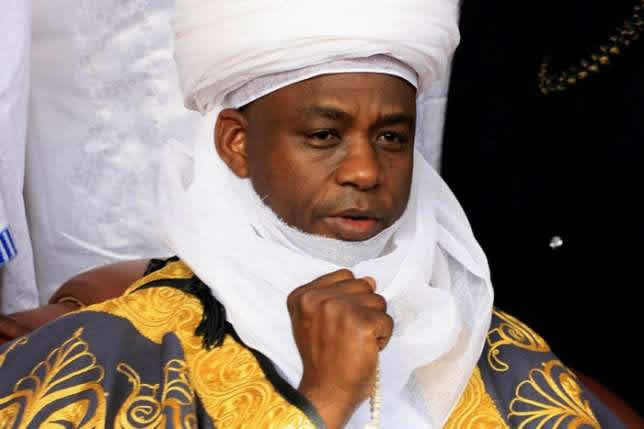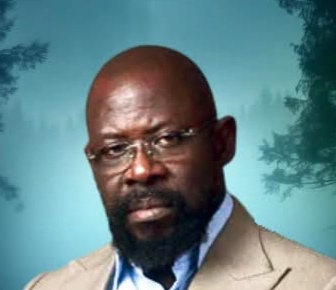The Oxford English dictionary defines ‘portable’ as “able to be easily carried or moved…” Now, I am using ‘portable’ to qualify Yoruba queens – wives of obas – who are now easily snatched by any loudmouth in town with enough careless cash. A Queen Dammy dashed out of the Aafin in Oyo and landed on the laps of dirty Okikiola in Lagos. It is not an isolated case. In Ile Ife, in Ilesa, in Iwo, it happened. Wives of our kings have become snacks (guguru and epa) in the mouths of street urchins. It is sad.
The happenings between Habeeb Okikiola Badmus, popularly known as Portable, and Queen Dammy, the ex-wife of Oba Lamidi Olayiwola Adeyemi III (October 15, 1938- April 22, 2022), the late Alaafin of Oyo, run contrary to the Yoruba ethos of Omoluabi. It is a sad commentary about the future of the Yoruba race, its culture, worldview and respect for age-long traditions.
I could not resist every video of the sordid episodic events not because I cherish them but just to keep abreast with the development and see when sanity would come calling! The question I keep asking myself over the matter is: how did we get here as a race? This is highly disturbing. Couldn’t these two kiss-and-tell spalpeens drag each other without involving the late Alaafin; thereby bringing shame to the entire Yoruba race?
Who are the parents of these ruffians? What about the elders in their communities? Are the two completely out of control, or nobody cares about them? If they are beyond redemption, can’t the race they are denigrating do something about them?
There are taboos in Yorubaland. One of them is that no man sleeps with the wife of a deity. Yoruba Obas are deities. The Alaafin has as part of his oriki, like every other Oba, “Aláse, ekejì òrìsà” (Sovereign, second in command to the gods). Alaafin is a combination of death (ikú), disease (àrùn), and loss (òfò). He doesn’t die; he lives. He can only change position. Then why these insults on his memory?
The other taboo that speaks to the Portable and Queen Dammy tango is that no mortal has an amorous affair with the wife of a Babalawo and lives to tell the story. By Yoruba cosmology, an Oba is the head of all principalities and powers, Babalawo inclusive. Whether ex, live-in or legal, no man touches the consort of a king and boasts about it later the way Portable is doing. The repercussions are too grave. Here is just an illustration.
In the days of our fathers, three different men had amorous affairs with Orò, the wife of Òrúnmìlà. The affairs produced three different children, all boys. But the defiants did not live to tell the story. Òrúnmìlà, who newly married his wife, Orò, was about to go in to her when he received the Macedonian call to come to Òyán by post because of a calamity in the town. He went with his wife, and they had a child there.
When the child was weaned, and Òrúnmìlà was about to get a second benevolence, another summons came from another distressed town, Ònkò, and pronto Òrúnmìlà again left with his wife. They also had a male child there. Later, Ilé-Ifè called on Òrúnmìlà for another assignment and he went back with his wife and had another male child.
So, when Òrúnmìlà was asked to come to the rescue of another town, he decided to leave Orò behind at Ilé-Ifè. He calculated that he would not stay too long and gave provisions that would sustain his family for the 17 days he planned to spend at the new place of assignment called Olókun. However, after three months, when Òrúnmìlà failed to show up, the 17-day provisions he provided got exhausted and hunger set in.
To salvage the situation, Orò joined a party of women firewood hewers. It was on their way to the forest that Orò met the first man, called Òndàáró, who gave her a large amount of money and had carnal knowledge of her. That resulted in pregnancy, and on hearing that Orò was Òrúnmìlà ’s wife, the man simply disappeared. Orò carried the pregnancy to fruition and had a male child.
She went back to the forest when the money was finished and met Òngòósùn, who also did the same thing with her. Thereafter, Orò also met Olúkoóló, who assisted her with money, slept with her and had a son. He too disappeared when he learnt that Orò was Òrúnmìlà ’s wife.
Òrúnmìlà did not return to Ilé-Ifè until after 16 years. He met his wife and the six children. Three of them were for him and the remaining three for the concubines. Òrúnmìlà kept quiet, adopting the Yoruba philosophy of Àgbàlagbà se’nú kodoro (Let the elderly widen his stomach). He taught five of the children, the three from concubines and two of his own, Ifa divination and when they had learnt enough, he sent the three children from other men to other lands to go and practice their trade.
After their departure, Orunmila entered his inner recess. He invoked the power of Ifá and killed Òndàáró, Òngòósùn and Olúkoóló. He fulfilled the wise saying that Akìí fé aya Babaláwo j’ayé (Nobody marries the wife of a Babalawo and lives thereafter), òkìkí gèè n’ílé eni fé’ya Èkejì Òòsà (Wailing and lamentation in the home of the one who dates the king’s wife).
Professor Wande Abimbola blamed the fate of Orò on Òrúnmìlà. The Àwíse Àgbáyé said that Òrúnmìlà was responsible for what happened because when he consulted Ifá, and a sacrifice was prescribed for him before he married Orò, he did not sacrifice the whole goat prescribed but half of it (See Ìjìnlè ohùn Enu Ifá, Apá Kejì, pg. 51). That notwithstanding, the three randy men were not allowed to gloat over their amorous relationships with Òrúnmìlà ’s wife.
If we may ask, what happened that Queen Dammy left Oyo Palace? How, in the first instance, did a character like her get into Alaafin’s harem? We cannot question the late Kábíyèsí. By the appellation, Kábíyèsí, it means that his authority cannot be questioned. I will not do that here, either. But I am worried about the loss of our traditional values.
The rate at which Oloris divorce kings in Yorubaland calls for sober reflections. It happened in Ilesha decades ago. Ifè and Ìwó, both prominent traditional towns, have had their ugly share of the trend! It happened in Òyó Aláàfin. Where else will it happen? What happened to the traditional rites of passage for would-be Oloris? Is it normal for our Obas’ wives to dash out of the palaces into the hands of scapegrace like we have in the Portable and Queen Dammy matter? How many Portables are waiting out there for the next Olorì? As far back as 1964, the late Hubert Ogunde enjoined us to think deeply; Yòrùbá Ro’nú. When are we going to do just that? Exactly WHEN?
The issue of Omoluabi concept brings us to the position of the leader of UK’s Conservative Party, Kemi Badenoch, on the parlous state of Nigeria. The reactions of Vice President Shettima, and the unofficial defender of Nigeria, Femi Fani-Kayode (FFK) speak more to the level of intolerance for truth by our leaders.
If Vice President Shettima and FFK were to have their ways, they would change the spousal name of Kemi Badenoch to “Badmouth’! The questions to ask are: what is more painful to Vice President Shettima and FFK in Kemi Badenoch’s statement of facts about Nigeria?
Is it the obvious fact that Badenoch said that corruption had finished off Nigeria? Or she said that she is not a Nigerian but Yoruba? Or, that she had nothing in common with the North of Shettima, which the UK politician said is the haven of insurgents?
One of the greatest problems we face as a nation is our attitude to play the ostrich anytime the country drifts. Nigerians, especially our leaders, are always pained whenever anyone attempts to speak truth to power. And these leaders have in tow, a huge band of attention seekers who must talk so that those in power can notice them. FFK has been in the cooler for a while now. Badenoch’s statements about Nigeria’s situation are what the Ile-Ife-born politician needs to catch cruise.
In the Nigeria of today, apart from the locusts in power, I mean the very ones that have unlimited access to State patronages and who live as tapeworms, feasting on our common patrimony, I doubt if there is anyone who is genuinely happy about the state of our affairs, and who can chest out and declare that he is proud of Nigeria.
Badenoch grew up on the streets of Lagos before she went to the UK. She was already an adult before she ventured out of Nigeria. She is in a good position to make comparisons. Our elders say that when a child has not seen another man’s farm, he boasts that his father’s farm is the largest in the community. The UK politician has seen both the Nigerian farm and the British farm. She knows which is better managed; better administered and has the potential to grow.
What are the issues she raised? First, Kemi Badenoch said she ran away from Nigeria and adopted the UK as “my country”, and would not want to come back to Nigeria, where she “saw firsthand what happens when politicians are in it for themselves, when they use public money as their private piggy banks, when they pollute the whole political atmosphere with their failure to serve others.” We may wish to ask Shettima and FFK if these are not statements of facts. Is it not true that in Nigeria today, there is no difference between the public till and the private purses of our politicians?
Badenoch added that while growing up in Nigeria, “fear was everywhere. You cannot understand it unless you’ve lived it. Triple-checking that all the doors and windows are locked, waking up in the night at every sound, listening as you hear your neighbours scream as they are being burgled and beaten, wondering if your home would be next.” Is that not correct in Nigeria of today? The eight years that Shettima was governor of Borno State, what was the level of security there? Even now, would the Vice-President venture in Borno without the full compliments of all the nation’s security architecture providing land and air surveillance and protection? Can FFK drive from Abuja to his hometown, Ilé-Ifè, unaccompanied by armed-carrying policemen?
In responding to Badenoch, Shettima asked her to drop her Yoruba identity, Kemi, because the Vice-President considered the remarks by the lady as demarketing Nigeria. This was also regurgitated by FFK, who added that Badenoch was “doing PR for the House Ni*gers Association & the racist, fascist scum that constitutes the far-right wing of your adopted country.”
As it is typical of FFK, he threw caution to the wild wind and used indecorous language by asking Badenoch to “Do us a favour by shutting your foul mouth, dropping ‘Kemi’ as your name & changing it to ‘Aunty Jemimah’ instead.” He stated that Nigeria does need nor want her! What banality!
If we go by common sense and the present situation of things in Nigeria, who does Nigeria need most between Kemi and the duo of Shettima and FFK? Would the nation have preferred to have more politicians without clear-cut ideologies; ones who jump from one political bed to another at the slightest change of power, or a Badenoch, who sees the truth and says it? Today, the people in power, who were once described as the direct descendants of the devil itself, are FFK’s buddies! Is that the man who will tell us the type of people Nigeria wants and does not want?
And if the duo of Shettima and FFK are asking Badenoch to drop her Nigerian name, Kemi, what do we ask them to drop? The fog of pretence that has shut their eyes to the naked truth? Truth is always bitter! Badenoch said that as a Yoruba lady, she identifies more with her Yoruba ancestry than the entire country, Nigeria, emphasising that she had nothing in common with the North.
She said: “I find it interesting that everybody defines me as being Nigerian. I identify less with the country than with the specific ethnicity Yoruba. That’s what I really am. I have nothing in common with the people from the north of the country, the Boko Haram area, where the Islamism is. Those were our ethnic enemies and yet you end up being lumped in with those people.”
Up North, how many genuine northerners are happy with the havoc Boko Haram and other insurgents are wreaking over there? How many of our brothers and sisters up North are free to go home? Shouldn’t that be a wake-up call to Shettima and other leaders of the region to tackle the problem headlong instead of calling for a change of name for a lady who simply said it the way it is?
And to worsen the matter, FFK said that Badenoch was doing “PR for the House Ni*gers Association & the racist, fascist scum that constitutes the far-right wing of your adopted country.” Does it occur to FFK that here in Nigeria, nobody gets to power without playing the ethnic card? Is the former minister oblivious of the fact that In Nigeria, patriotism takes the back seat, while selfishness is at the forefront? Does he not know that this accounts largely for why we are where we are today as a people?
In case FFK pretends not to know, may we bring it to his hearing that here, everyone has their selling formula. General Muhammadu Buhari sold himself by calling all of us corrupt. He said he was the only ‘Saint’ around; we bought the dummy and for eight years, the Daura-born retired General showed us shege, as corruption wore three-piece suits, walking our streets with impunity! The best Buhari did was to pick his teeth!
FFK’s current friend and leader, President Bola Ahmed Tinubu, bellowed “Yooba l’okan; Emilokan.” He approximated a whole race to himself and got what he wanted. So, what is wrong in Kemi displaying the torn, unwashed undergarment of Nigeria per second if that is what titillates her audience?
There has been nothing she said that is false. What her homegrown critics have been saying is that she shouldn’t have spoken ‘this’ and ‘that’ truth. that runs contrary to the ethos of Omoluabi as a Yoruba lady. If you ask me, I will tell you that Nigeria needs more people like Badenoch and less of Shettima and FFK for a better country!




